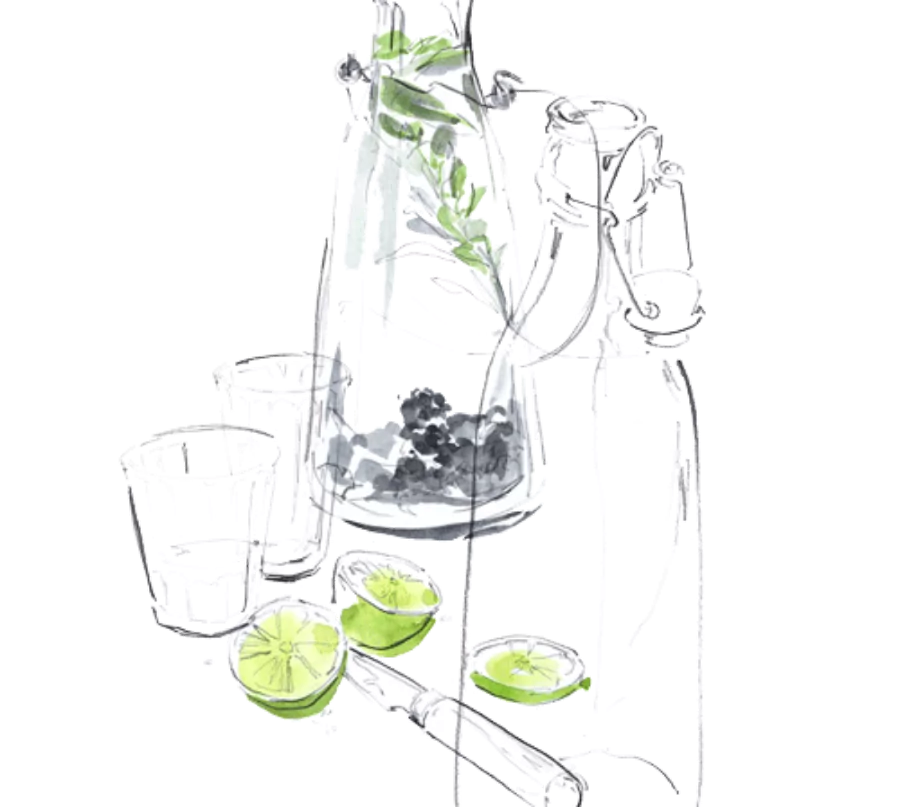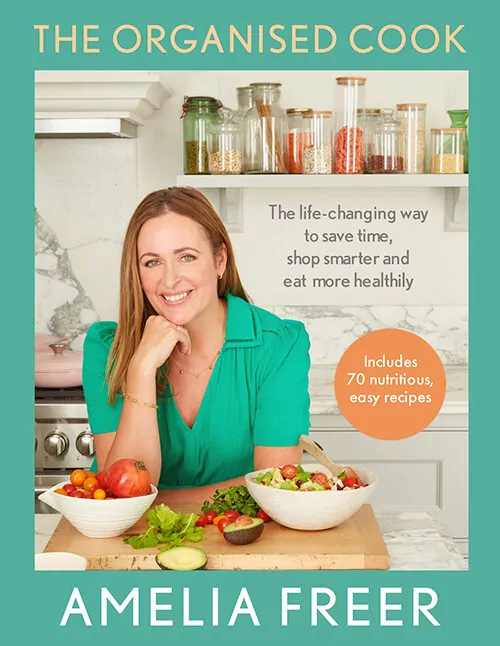Is UK Tap Water Safe to Drink?
Feb 2019
This article will try to explore some of the commonly raised questions and queries about UK tap water consumption, and share some further resources if you’re interested in reading more. I hope you find it helpful.
What about Fluoride? Is it added to our water?
Fluoride is naturally present in low levels in most of the drinking water in the UK. Some authorities, however, add more fluoride, because it may help to prevent tooth decay.1 However, this practice remains somewhat controversial 2 as it may in fact be the application of fluoride directly to the teeth (i.e. from toothpaste, or from our saliva if we ingest fluoride), which holds the key to good dental health – rather than whole body fluoridation. The UK has set a maximum upper limit for fluoride in drinking water at 1.5mg/l 3
And, are there any harmful effects from fluoride in our water?
This is a tricky question to answer, as there are rather a lot of conflicting views on this topic. It seems that if you are exposed to very largeamounts of fluoride (either from excessive or very concentrated fluoridated water or from other sources), there may be some risk to health.4 However, this is unlikely to occur with normal, everyday water consumption. It is generally thought that as long as water contains less than 1.5mg/l fluoride (the regulated UK upper limit), it does not pose a risk to human health.1 Indeed, a report from 2014 from Public Health England concluded that “water fluoridation is a safe and effective public health measure”3.
Is hard water bad for me?
Hard water is formed when rain filters through rocks rich in minerals, such as calcium and magnesium. Therefore, the hardness of your water will depend on your local geology. There are no proven negative health effects of having hard water (although your washing machine might not last so long!), and in fact, it may even provide a handy extra source of essential calcium and magnesium in your diet.5 Some people have found that using a water softener system for bath or shower water helps to improve their eczema. However, a randomised study of 336 children found that the water softeners provided no additional benefit to their eczema, compared to children without a water softener system 6, so it’s probably a case of personal trial and error.
What about lead?
If your house was built before 1970, then there is a small chance that you may have underground lead pipes connecting your home water supply to the network. Small traces of lead can ‘wash off’ the inside of these pipes and into your drinking water. The World Health Organisation has set a maximum limit of 10 micrograms / l of lead in drinking water, because levels higher than this are considered harmful, particularly for children and pregnant women.7 Overall, lead exposure should be kept to a minimum.
If you are concerned at all that your home may have lead pipes, you can ask your water company to test your tap water. Take a look at the following leaflet for more information: https://dwi-content.s3.eu-west-2.amazonaws.com/wp-content/uploads/2022/10/11164244/Lead-Accessibility-Leaflet-v2.pdf
What about chlorine?
The UK uses a low level of chlorine to keep drinking water free of bacteria and other microbes, especially as it travels along the miles of pipes from the treatment works to your home. Clean, safe drinking water is incredibly important to everyone’s health, keeping all sorts of dangerous waterborne infections at bay. Chlorine is therefore added as an important part of the water treatment process. However, concerns about this practice have been raised by some people.8 When chlorine reacts with organic matter (naturally found in water sources), it can spark a chemical reaction that forms a group of by-products known as ‘trihalomethanes’ (THMs). High levels of THMs have, hypothetically, been linked to various health problems – although inconclusively. Regulations have, however, now been set for maximum levels of THMs in our tap water to help minimise this risk.8
Activated carbon filters may be used to help remove chlorine and its by-products from drinking water.8 You may also find that it improves the taste of your water – which can be useful if you’re struggling to drink enough water throughout the day. Do make sure you follow the manufacturer’s instructions though, and change the filter regularly for optimum function.
It’s important to point out that any potential risk posed to us from small amounts of chlorine (or its by-products) in our water is still significantly less than the risk posed by water which hasn’t been disinfected.
And what about birth control pill residues?
River water downstream of waste water discharges may have some detectable levels of the active ingredient in most combined oral contraceptive pills – ethynyl oestradiol. However, both routine filtration and disinfection by water treatment plants is reportedly effective at removing this from our drinking water. 9
A note on reverse osmosis filters…
Reverse osmosis (RO) filters remove most dissolved solids and minerals from water, which can be useful for specialist work (such as photographic processing or growing plants using hydroponics). However, it is not generally recommended to drink RO water, unless all the appropriate minerals, in the right quantities, have been added back. It is also a requirement in law to let your water supplier know if you intend to install an RO system.10
And on ion exchange filters…
Water softener systems are sometimes installed in areas of particularly hard water. These work by replacing calcium and magnesium ions in the water with sodium. This can be helpful for domestic appliances, and makes soap lather up far better. However, the Department of Health doesn’t recommend drinking or using water treated this way for cooking. Sodium is the mineral responsible for the negative health effects of excessive salt in your diet. Therefore, treating your drinking water this way may potentially supply you with an extra hidden source of salt, so is probably best to avoid.10
Water filters
For more information about home water filters, you may find this leaflet useful:
dwi.defra.gov.uk/consumers/advice-leaflets/filters.pdf
I do not specifically endorse any particular type of water filter over another; it is important to do your own research to find a system that works for your needs, budget and family requirements, if tap water filtration is something you choose to do. However, there are a couple of filters that either myself or my colleagues use that I thought might be useful to list, just to get you started.
- For a large countertop system: berkey-waterfilters.co.uk – the 8-litre ‘Big Berkey’ worktop filter is enough for a family to use for all their drinking and cooking water.
- For a simple glass carafe with activated charcoal – good to keep in the fridge: black-blum.com/products/eau-carafe
- For under-sink water filters, take a look at those offered by Healthy House: healthy-house.co.uk/water/
Once you invest in a water filtration system, it is important to follow the manufacturer’s directions (particularly around cartridge replacement), to ensure that it remains safe and effective.
Interested in finding out more?
Checking the quality of your drinking water:
gov.uk/check-drinking-water-quality
dwi.defra.gov.uk/consumers/advice-leaflet
More water quality advice leaflets: dwi.defra.gov.uk/consumers/advice

The bottom line?
Ultimately, the water that comes out of our taps in the UK is generally considered safe to drink, and is undoubtedly more ecologically sound than relying on bottled water. However, there are still a number of unanswered questions regarding specific treatment processes, and also the best types of filtration systems (if any!) to use. It is ultimately down to your personal preference, budget and taste.
If you are concerned about the quality of your drinking water, however, you could contact your local water provider and ask for information regarding your own water supply systems and recent water quality test reports. This may be particularly important if there is a chance that you have lead pipes suppling your home.
References & Bibliography:
Government of Canada (2016) It’s your health – Fluorides and human health [Health Canada, 2010]. Available at: http://www.hc-sc.gc.ca/hl-vs/iyh-vsv/environ/fluor-eng.php (Accessed: 21 November 2016).
Peckham, S. and Awofeso, N. (2014) ‘Water Fluoridation: A critical review of the physiological effects of ingested fluoride as a public health intervention’, The Scientific World Journal, 2014, pp. 1–10. doi: 10.1155/2014/293019.
PHE: Public Health England (2014) Water Fluoridation.
NRC: National research council (2006) Fluoride in drinking water: A scientific review of EPA’s standards. Available at: https://www.nap.edu/read/11571/chapter/2#10 (Accessed: 8 September 2016).
Sengupta, P. (2013) ‘Potential health impacts of hard water’, International Journal of Preventative Medicine, 4(8), pp. 866–875.
Thomas, K.S., Dean, T., O’Leary, C., Sach, T.H., Koller, K., Frost, A. and Williams, H.C. (2011) ‘A Randomised controlled trial of ion-exchange water Softeners for the treatment of Eczema in children’, PLoS Medicine, 8(2), p. e1000395. doi: 10.1371/journal.pmed.1000395
WHO (2016) Lead poisoning and health. Available at: http://www.who.int/mediacentre/factsheets/fs379/en/ (Accessed: 21 November 2016).
Canada, G. of, Canada, H., Affairs, P., Consultation and Branch, C. (2006) It’s your health – drinking water Chlorination [Health Canada, 2004]. Available at: http://www.hc-sc.gc.ca/hl-vs/iyh-vsv/environ/chlor-eng.php (Accessed: 21 November 2016).
DWI (Drinking water inspectorate) (2013) Pharmaceuticals and drinking water. Available at: https://dwi-content.s3.eu-west-2.amazonaws.com/wp-content/uploads/2022/10/14171527/Pharmaceuticals-Accessibility-Leaflet.pdf (Accessed: 8 September 2016).
DWI (Drinking Water Inspectorate) (2013) Water filters and other home treatment units. Available at: https://dwi-content.s3.eu-west-2.amazonaws.com/wp-content/uploads/2022/10/14174056/filters_v3.pdf (Accessed: 8 September 2016).
https://www.pukkaherbs.com/your-wellbeing/blog/2017/06/pukka-herbs-bamboo-cup/
MORE TO EXPLORE
Please note that the information on this website is provided for general information only, it should not be treated as a substitute for the medical advice of your own doctor or any other health care professional providing personalised nutrition or lifestyle advice. If you have any concerns about your general health, you should contact your local health care provider.
This website uses some carefully selected affiliate links. If you buy through these links, we may earn an affiliate commission, at no additional cost to you. This helps to keep all of our online content free for everyone to access. Thank you.




